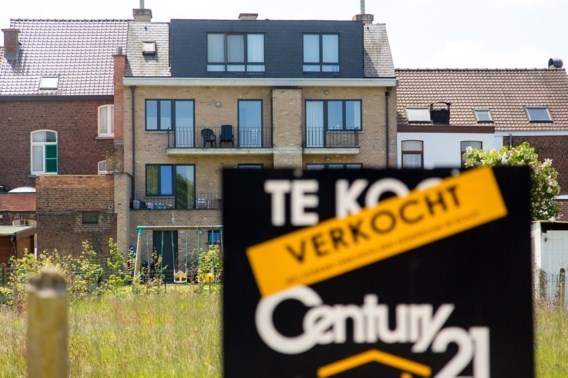Energy ratings, the age of a property, and bonuses like a garden, parking space or swimming pool all drive up the value of a property in Belgium. But by how much do these factors raise the average selling price?
A study by Immoweb shows how these different factors can influence the value of properties (per m²) in Belgium, and how their desirability varies across different regions, and between houses and apartments.
Houses: energy efficiency, age, and outdoor space the biggest price drivers
For houses in Belgium, energy performance certificates (EPC) are a "core criterion" for setting the sale price of a house, "especially in a context of growing environmental awareness, rising energy costs and increasingly strict regional regulations", according to Immoweb.
In Flanders, a house with an A rating is on average 19.2% more expensive than an identical house with an D rating, while in Wallonia houses with an A or B score have an added value of respectively 14.1% and 11.9% compared to an identical home with a D score.
Due to a stricter scale, it is rarer to find homes with an A or B score in Brussels. Homes with an F score, which are more common, are 2.3% cheaper than comparable homes with a D-score.
The year of construction of a property is also a big influence on price, which is most true in Brussels. A more modern house (built after 2010) is on average 18% more expensive than a post-war home (built between 1945 and 1970). In Flanders and Wallonia, modern homes are 15% and 10% more expensive respectively.
Across regions, renovating a house adds around 9% in value, compared to an identical property that is just well maintained.
Extra bonuses like a garden or swimming pool also drive up the selling price of houses across all regions, especially since the pandemic and the rise of teleworking, as Immoweb says the "demand for outdoor space has increased significantly".
On average, a house with a garden on a plot of 250 to 500 m² costs up to 21.8% more than an identical house without a garden on a plot of 100 m².
Meanwhile the presence of a swimming pool can drive up the property price by 7.87% and 9.42% respectively in Flanders and Wallonia, and by as much as 17.65% in Brussels.
Apartments: bathrooms and parking spaces are extra luxuries
For apartments, energy ratings and property age also have a big influence, as well as the number of bathrooms and access to a parking space.
Although energy costs are often lower than for houses, a good EPC score is still an "important asset for apartments".
In Flanders an apartment with an EPC score of A costs on average 15.48% more than an identical apartment with a D score. Meanwhile in Wallonia the added value for an A grade home is 17.29% compared to a flat with a D score.
In Brussels, the price difference between a B and a D grade apartment is 3.5%.
There is also a "clear increase" in price for apartments built after 2010, compared to those built between 1990 and 2000. In Flanders, the gap is as high as 16%, while newer apartments are 9% more expensive in Wallonia, and 8.5% pricier in Brussels.
For apartments, extra bathrooms and parking space are also hot commodities for buyers.
In Flanders, having two bathrooms in an apartment rather than one can increase the value by 12.4%, with the added value more moderate in Brussels (+2.6%) and Wallonia (+1.9%).
To get an apartment with your own covered parking space will cost you an extra 6.29% in Wallonia, and an additional 4.04% in Brussels. The presence of a parking space has "no significant impact" on an apartment price in Flanders.
The Immoweb study covered houses and apartments (excluding new construction) offered for sale on the Immoweb site from 1 November 2023 by agencies and/or private individuals in the three regions.

